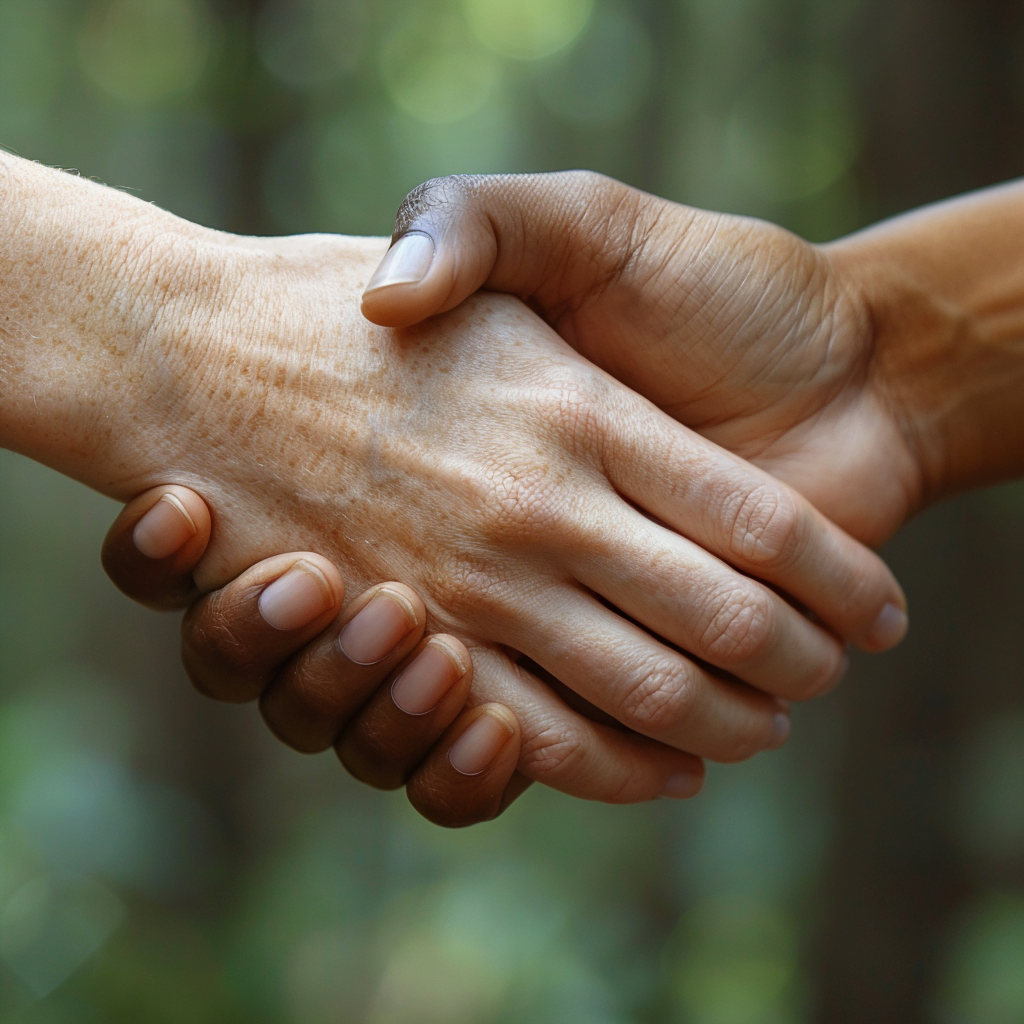Key Points
Here are some key points to factor on if you should share your boyfriend:
- Consent and Communication: If you want to share a boyfriend, everyone involved needs open and honest talk. Everybody must agree and know the relationship rules and what to expect.
- Emotional Considerations: Being in a shared relationship can bring up strong feelings. You need to be emotionally strong and ready to deal with jealousy or arguments that might pop up.
- Relationship Structure: There are different ways to have a shared relationship, like polyamory or open relationships. It’s key to decide on the type of relationship and set the rules so everyone stays happy.
Contents
- 1 Key Points
- 2 The Value of Open Talk
- 3 Setting and Respecting Boundaries
- 4 Dealing with Jealousy and Insecurity
- 5 Societal Attitudes
- 6 Legal Status and Rights
- 7 Advocacy and Support Networks
- 8 First-Hand Accounts
- 9 Diversity of Experiences
- 10 Growth and Self-Discovery
- 11 Redefining Love
- 12 The Many Forms of Affection
- 13 Emotional Fulfillment
- 14 Frequently Asked Questions (FAQ)
Definition and Scope
A non-traditional relationship isn’t your typical romance. These could be polyamorous, open, or same-sex relationships, among others. The goal here is to really get these kinds of connections and see they’re just as complex as the usual ones.
Prevalence and Cultural Perspectives
Different cultures and places view unusual relationships differently. Some accept and even celebrate them, while others are not so welcoming. This part looks at how various cultures see these non-traditional pairings.
Key Terms and Concepts
Knowing terms like ‘consent’ and ‘ethical non-monogamy’ is essential when talking about unique relationships. These words help us understand the rules that guide these special connections. Learning these concepts helps us respect non-traditional relationships better.
Historical Context
In the past, survival and property were often what drove relationships, not love. This stayed true into the Middle Ages, where marriages were more about power than sharing emotions or lives. Modern relationships usually didn’t exist back then.
Contemporary Views
Nowadays, we care a lot about emotional connections in our relationships. We share more than things – we share feelings and experiences. Partners now look for fairness in what they put into and get from their relationships. Non-traditional pairings, like polyamory or open relationships, challenge the usual one-partner rule by welcoming multiple romantic ties.
Psychological Implications
Sharing in relationships builds trust and closeness, and it’s good for you. But it can also lead to trouble if you’re insecure or don’t talk things out properly. Partners have to be clear about their limits while being honest and respectful. When done right, this kind of sharing can make for deeper bonds and happier relationships.
Different kinds of non-monogamous relationships exist, such as polyamory, open relationships, swinging, and relationship anarchy.
Polyamory
In polyamory, people have more than one loving and romantic relationship at the same time with everyone’s OK. Talking things through and being truthful are super important when juggling several partnerships.
Open Relationships
Open relationships are a bit different from polyamory. Here, a main couple agrees one or both can have sexual flings on the side. These flings are more about physical fun than falling in love, while the main thing is still an emotional tie.
Swinging
Couples who swing trade partners with other pairs just for sex. This usually happens in certain spots like clubs made for such swaps. The point is just fun without starting any serious outside romance.
Relationship Anarchy
This idea throws out all the usual rules for how relationships should work. People who like relationship anarchy choose to be free and shape bonds that don’t follow a set of rules or rankings. They value all connections equally, whether they’re friendships or romances.
The Value of Open Talk

When relationships are not typical, it’s crucial to keep talking openly and truthfully. Being able to chat freely is the core of getting each other and trusting one another. If partners consistently share their emotions, wants, and what they go through, they can handle the special challenges that come with their relationship.
Being straight-up with each other lets people share everything about themselves without worrying they’ll be judged. It creates a space where everyone feels important and listened to. That paves the way for a strong relationship that’s deeply rooted in respect.
Setting and Respecting Boundaries

Creatin’ limits is key in any kind of relationship, and it’s even more important when you’re not following traditional norms. Boundaries help all partners feel secure and valued. Everyone must work together to figure out and maintain these limits, making sure every person is heard.
Kickin’ off boundary talks means getting real about what each person needs and what they’re comfy with. And once those boundaries are laid out, respecting them is just as crucial. You’ve gotta recognize how much your partner’s limits matter and do your best to keep from oversteppin’.
Dealing with Jealousy and Insecurity

Jealousy and insecurity can pop up in any love life, but they’re often bigger deals in relationships that are out of the ordinary. Here are some ways to handle these tricky feelings:
- Admitting You’re Jealous or Insecure: Realizing you feel this way is the first step. It’s okay to feel like this; just don’t beat yourself up.
- Talking About It: Good old-fashioned talking helps a ton. Telling your partner about your worries means they can help you feel better.
- Thinking It Over: It’s smart to figure out why you’re feeling these things. That way, you can sort them out better.
When you work on these emotions as a team, your relationship gets stronger, with more trust and emotional closeness.
If you’re into the kind of romance that’s not what most people expect, you’ve gotta think about the ethics. Ethics are like the rules that folks in these relationships follow to keep things cool and respectful.
Consent and Being Your Own Person
The biggie in any relationship, especially the unconventional kinds, is that everyone involved has to be okay with what’s going on and do it freely. This way, each person makes their own choices about the relationship.
Being Honest and Clear
For these not-so-typical relationships to stay solid, being honest and open is key. Everyone needs to talk straight about what they want, hope for, and need to feel secure. This keeps misunderstandings away and boosts trust.
Handling Your Feelings
You’ve got to look after your emotional health and think about how others feel, too. This means figuring out your own feelings and being ready to chat when there’s trouble. This kind of care helps everybody in the relationship do well.
Now, let’s get into what it’s like when relationships include more than two people. We’re taking a peek here at times when someone decides to bring extra partners into their already established duo.
The Stories of Real People
We’ve got stories from pairs who’ve let someone else join the fun, maybe just for one night or maybe for longer. These experiences range all over the place—some have strict rules, while others just go with the flow and see what happens.
The Hard Bits and How to Solve Them
Starting something where you share your significant other isn’t easy. You might run into jealousy, uneven feelings, or trouble keeping everyone happy. To deal with these bumps in the road, being honest, setting clear rules, and always checking to make sure everyone’s still okay are super important. Plus, getting advice from counselors or groups who know about this stuff can really help.
Changing Up How You Relate
When you add new people into your love life, it shakes things up for the main couple. For some, it strengthens their bond and improves how they communicate, leading to better understanding and intimacy. But sometimes it shows there are problems that need fixing. Either way, sharing your partner shakes things up a lot inside your relationship.
Societal Attitudes

Lately, we’ve seen society start to change its mind about relationships that step out of the old-school mold. Folks are starting to be okay with different ways people connect, like having multiple partners, not closing the door on other relationships, or being with someone of the same gender. But even so, these kinds of relationships get a lot of side-eye and doubt. The usual way of thinking is tough to shake off, and it’s not easy for people in relationships outside the norm to get the thumbs up from everyone. Even with some forward strides, the bad rep that comes with going against the relationship grain is still messing with how these people live their lives.
Legal Status and Rights

The laws recognizing people in unconventional relationships and the rights they get differ a lot depending on where you are. In a bunch of places, only married couples – that’s one man with one woman – get the perks like tax cuts, rights to inherit stuff, and making important health decisions. If you’re not in this kind of setup, things can get messy with who gets the kids, who can visit someone in the hospital, and who owns what. But there’s good news! Some areas are changing the rules to be fairer, ’cause they see that love doesn’t always look the same.
Advocacy and Support Networks

As more people see non-traditional relationships, advocacy groups and support networks for these partnerships have also grown. These organizations tirelessly educate others, push for new laws, and give out info to those in non-traditional relationships. They provide everything from online spaces for sharing stories and tips, to taking action against old-fashioned legal rules. These groups are essential in helping society and the law accept different kinds of relationships.
Personal stories are crucial for understanding the ins and outs of unconventional relationships. They give genuine peeks into the good times, hard bits, and all the feelings that come with these connections. These stories make the discussions real, filled with actual life experiences and emotions.
First-Hand Accounts

Stories told by people who have actually lived through the experience are extremely useful. They offer a one-of-a-kind view and understanding, highlighting the little details that someone watching from the outside might miss. These personal stories carry with them extra significance because they come from the heart of someone who was directly affected, giving us a richer picture.
Diversity of Experiences

Non-traditional relationships come in all shapes and sizes. They’re special because every couple’s story is different, influenced by varied cultures, situations, and values. This variety proves love doesn’t have a set formula—it’s open to everyone’s unique way of being together.
Growth and Self-Discovery

Exploring unconventional relationships often sparks personal change and self-awareness. As people tread new ground in their unique love lives, they usually find chances to grow. This journey can help them learn new things about who they are, what they want, and get a fresh perspective on relationship dynamics that are not commonly talked about.
Redefining Love

Nowadays, when people talk about romantic relationships, their view of love is getting updated. We’re stepping away from the old idea that love means being with just one person and nobody else. The latest take on love is more open, accepting many different kinds of relationships. This change means we’re getting comfortable with the idea that love doesn’t have to look one particular way. Now, folks are open to the idea that you might feel love for more than just one partner at a time, acknowledging the many forms love can take.
The Many Forms of Affection

Affection isn’t just one thing for everyone – it’s got many faces. People understand now that you can care for lots of folks at once and it doesn’t make your feelings any less real. It could be a touchy-feely kind of love, a just-friends vibe, or somewhere in between. What matters isn’t who you’re with but how strong and deep that connection goes. We see now that our emotions are flexible; they change to match all the different kinds of ties we have with people, making up a whole network of the feels.
Emotional Fulfillment

Feeling fulfilled emotionally is just as important in non-traditional relationships as it is in traditional ones. In these relationships, fulfillment doesn’t always come from just one place. A person might get what they need from different relationships that satisfy different emotional needs.
For example, one partner might challenge you intellectually while another gives you emotional support. This shows how diverse relationships can help your overall happiness. Understanding that you don’t have to rely on one relationship for everything shows the broader acceptance found in non-traditional relationships.
Frequently Asked Questions (FAQ)
What are the emotional implications for a woman considering allowing her boyfriend to be shared?
Embracing the idea of a shared boyfriend can stir a multitude of emotions, ranging from excitement to anxiety. It often requires solid self-awareness and honesty to deal with potential issues such as jealousy, trust issues, and shifts in dynamics. Women must assess their own comfort with the polyamory structure, understand their needs for emotional fulfillment, and determine whether the decision aligns with their principles regarding relationships. Consent and open communication between all partners are paramount. Moreover, each person’s wellbeing should remain a priority throughout this journey.
How should couples navigate new desires brought into a polyamorous situation like cuckqueaning fantasies?
When new sexual fantasies or desires like cuckqueaning emerge in a polyamorous relationship, it is crucial to approach them with respect and consent from everyone involved. Open discussions serve to explore boundaries and gauge comfort levels. It’s important that partners hold space for each other’s emotions and avoid dismissing any concerns or discomfort that may arise. Acknowledging risks and ensuring there’s an underlying foundation of trust are central to moving forward without causing harm or resentment among partners.
Can sharing your boyfriend in a threesome strengthen the primary relationship?
In some cases, sharing a boyfriend in a threesome can enhance the primary relationship, but it’s not a guaranteed fix for underlying problems. The outcome depends on the reasons behind this decision, the level of trust, and the emotional maturity of all parties. Exploring such fantasies can be an act of shared exploration and growth when done thoughtfully and with clear communication. However, it’s imperative that these acts do not stem from pressure or lack of consent, as that can lead to negativity and discord instead of fostering a closer bond.
Is an age gap between partners significant when considering sharing your boyfriend?
The age gap between partners in a polyamorous relationship can play a role in their dynamic, particularly when considering sharing a boyfriend. Differences in experience, maturity, and life stages could influence how each person perceives and handles the situation. It’s vital that all partners engage in honest conversations about their expectations and are able to give informed consent. A successful arrangement will depend on mutual respect, understanding, and compatibility more than just the numerical difference in ages.
What advice would you give someone struggling with trust issues after agreeing to share their boyfriend?
If trust issues surface after agreeing to share one’s boyfriend, it’s impactful to openly discuss these feelings with your partner(s). Acknowledging your vulnerabilities fosters an environment of empathy and compassion. Work on reestablishing trust through consistent and sincere actions, transparency in communication, and perhaps seeking professional guidance like therapy if needed. Trust is fundamental in any relationship format; thus, prioritize healing and strengthening this aspect before proceeding with shared sexual activities.
How does one handle feelings of neglect if their boyfriend’s attention drifts post-sharing agreement?
Handling feelings of neglect requires addressing the issue head-on with your boyfriend. Engage in a calm and honest discussion about your emotions, detailing instances where you’ve felt sidelined. Encourage them to express their perspective too. Collaborate to formulate a plan that ensures everyone’s emotional needs are met fairly. It may also be beneficial to establish specific times dedicated solely to nurturing your primary relationship. Remember that feeling valued is key to maintaining balance within a polyamorous agreement.
What should be considered before entering into platonic relations with your boyfriend’s other sexual partners?
Before venturing into friendships with your boyfriend’s other partners, reflect on your comfort level with this degree of closeness. Consider discussing potential benefits and challenges with your primary partner first. It’s also prudent to think about boundaries regarding what aspects of your relationship are open for discussion with others. Establish clear ground rules for these new platonic relationships and proceed with an attitude of respect and genuine interest in building harmonious connections.
How do polyamorous individuals manage sexual health risks when sharing their boyfriend?
Managing sexual health risks in polyamory involves consistent and transparent communication about sexual histories and health status. Regular testing for sexually transmitted infections, frank discussions on safe sex practices, and agreements on barrier methods are critical strategies. Partners must make informed decisions together about risk tolerance levels and adhere to any predetermined guidelines they’ve set. Above all else, each person must take responsibility for their own health and the wellbeing of others in their network.
How might bisexuality impact the dynamics of sharing boyfriends in polyamorous circles?
Bisexuality can add layers of complexity as well as richness to polyamorous relationships involving shared boyfriends. It opens up possibilities for varied types of romantic and sexual connections among different genders within the network. However, it can also introduce unique challenges related to managing multiple relationships with sensitivity to each partner’s needs. Ensuring that everyone has clarity on expectations and consents to the arrangements helps maintain equilibrium within these potentially multi-faceted dynamics.
To what extent does society affect personal comfort with the concept of ‘sharing my boyfriend’?
Society significantly influences individual attitudes toward non-traditional relationships like ‘sharing my boyfriend.’ Societal norms and pressures can cause people to question or feel insecure about their unconventional relationship choices. However, engaging with supportive communities or resources can bolster confidence and help overcome societal judgments. The shift toward wider acceptance is gradual, yet being surrounded by accepting peers enables individuals to honor their authentic desires regardless of external opinions.

I’m Kary Walters, a wedding planner and writer with a passion for helping couples stay together and achieve their relationship goals. With over a decade of experience, I specialize in self-improvement and have worked with individuals & couples facing challenges.